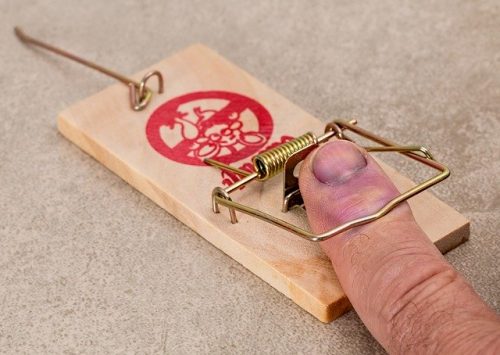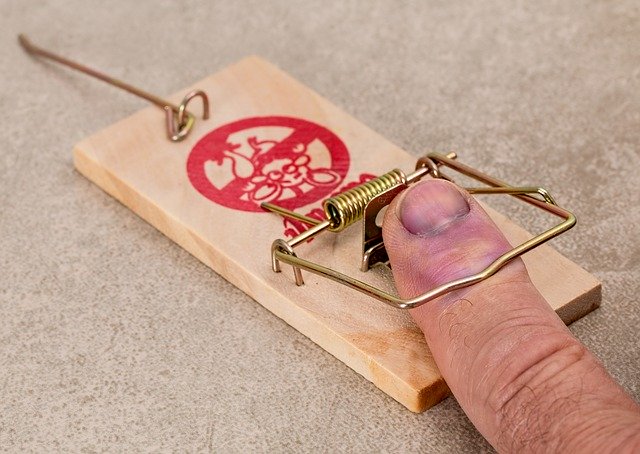 I confess up front that I’m going to face-plant on this post, because I can’t conceive that I will explain my thoughts well enough that I won’t set myself up (and provide the damning evidence) for all sorts of hounding, canceling, and general condemnation. I guess that, in knowing the consequences going in, I can work to be as precise in my language as possible without precisely tiptoeing through the minefield. Minefield’s gonna get me.
I confess up front that I’m going to face-plant on this post, because I can’t conceive that I will explain my thoughts well enough that I won’t set myself up (and provide the damning evidence) for all sorts of hounding, canceling, and general condemnation. I guess that, in knowing the consequences going in, I can work to be as precise in my language as possible without precisely tiptoeing through the minefield. Minefield’s gonna get me.
So here it goes:
Racism is not the worst thing ever.
Understand that for most of human history, the entire concept of “racism” as a sin or thoughtcrime would have been nonsensical, because it presupposes that people of visibly different ethnic heritages could ever even be in a situation where there was a question of considering them legal equals in a single society. But when any single society was limited to a few city-states at most, the homogeneity of their genetic and cultural heritage was more than an unspoken assumption, it was a positive feature: in a world in which armed conflict and conquest were heaped on top of the uncertainty of agriculture, disease, and royal or civil succession, simple affinity grouping was a survival trait. This is the heritage we bear from descending from social apes.
Thus, two things are baked into human behavior:
- A xenophobic caution. At its most basic, “like me” is safer than “not like me.”
- Using visual cues as a proxy for the other’s ethnic identity and relationship to me (i.e., how much the other is “like me”).
These are both instinctive hardwired behavioral tendencies, and they are obviously wrong a lot of the time. You want an extreme example? Fine: Ted Bundy. He could approach his prospective victims (all white college girls) socially because the cues which he gave off, visually and behaviorally, didn’t instinctively convey the message of “possible threat” to them in the same way that someone exhibiting different visual and behavioral cues could have.
But the idea that the average human being is more comfortable in the company of other human beings who share those visual cues which act as a proxy for ethnic and social identity is so fundamental to human behavior that it doesn’t even warrant any quarrel.
The problem is that, as a single culture/nation becomes broader and incorporates more ethnic elements which once would have had no contact, that instinctive behavior becomes less and less useful, because the entrenched visual cues track less and less with actual affinity (socio-economic and educational commonality).
Here’s another example, much less extreme: Barack Obama. Here was the son of a white American academic and a black Kenyan economist, born in Hawai’i; in other words, he was not the product of “African-American” culture or heritage, with its history of slavery and racial segregation. Some promotional material from his pre-political publishers emphasized that he was “from” Kenya (one even erroneously proclaiming that he was born there). Yet in his first presidential election, he received 95% of the votes cast by African-Americans, with 69% African-American voter turnout (i.e., 66% of the total African-American electorate). For comparison, Democrat John Kerry received 88% of the African-American vote with 60% African-American voter turnout in the previous election (53% of the African-American electorate), and Hillary Clinton received 89% of the African-American vote with 59% voter turnout in the election thereafter (53% of the African-American electorate). I hope we can all admit that a significant percentage of those added voters must have cast their votes based on identification of an affinity with Obama based on visual cues which didn’t track with his actual history and heritage — i.e., because he was “one of us” based on skin color, even though that didn’t track with personal or family history.
So. We’ve established that affinity bias exists. Like attracts like, based on sometimes deceptive visual cues. That fact, in itself, isn’t so much “evil” as “counterproductive.” Snap judgments that draw on visual cues with much less relationship to actual affinities in a multi-ethnic society can lead to poor initial interactions. Just because someone looks like me in terms of a discrete checklist (gender, hair color, skin color, general body size) does not correlate to actual meaningful commonalities between us in a mobile, multi-ethnic society: educational background, religious affiliation, political sensibilities, family structure…
But even as I recognize that affinity bias is often useless or counterproductive in my life, I can also recognize that, as I step back in time, it becomes more and more reasonable. I hope no one will argue against the fact that modern Western lifestyles in the last century have been both the most ethnically mixed and the physically safest for the vast majority of people; it thus stands to reason that, as we look back, we can see that social groups — with less visible ethnic diversity and greater chance of physical conflict between immediate social groups — were better served by those instinctive affinity biases. The further back we go, the more leeway I will give to people who simply did not have the social interactions which would counter the affinity bias in their behavior. I will condemn much less a 17th-century Englishman, or a 13th-century Chinese, or a 1st-century Roman for an attitude which I would find abhorrent in a 21st-century American, because that American should know better.
I also recognize that an instinct toward affinity bias, even in the modern world, is less “evil” than “useless.”
It’s not worse than — or even as bad as — conscious fraud, or robbery, or adultery.
I wouldn’t even say it’s as bad as the urge to demonize, denigrate, and “cancel” anyone whose viewpoint differs from our own.
If you are seeking to condemn, rather than conciliate, you are in the wrong. You have replaced an unconscious and subtle tendency toward affinity bias with a very deliberate attempt to find and label enemies that you can hate.
You have become, in all honesty, worse than racism.

Well, yes; it’s increasingly clear from some of the sheer absurdity in this virtue-signalling we’re seeing that the people who scream “Racism!” the loudest are those who actually care the very least about it. They’re into attaining a thoroughly undeserved good opinion of themselves from the media (both social and traditional) so that they can attain wealth, fame and—above all—power. Back in those earlier centuries (or decades, for that matter; the 1950s weren’t all that long ago), these power-hungry types would have exploited racism to get into power the same way they’re exploiting anti-racism (or the appearance of it, anyway) to get into power now.
Speaking of earlier centuries, I find one of your old movie reviews (Aliens in the Wild Wild West (1999)) particularly relevant when you talk about how these old affinity biases were kind of necessary for the survival of the various civilizations in which they arose. As you pointed out, the attempt to impose modern multicultural sensibilities on a late 19th century setting strained credibility to the breaking point in that movie:
Not that the past was as glamorous or glorious as some people like to think, but I suspect one reason a fair number of people like stories set in earlier times (like the late 19th century) and post-apocalyptic times (in which civilization usually is shown to have regressed to being something like those earlier centuries) is that they find it pretty amusing (and gratifying) to contemplate what would happen to all these virtue-signalling offenderatti these days who pretend to take the greatest umbrage and be in the highest dudgeon at the tiniest alleged transgression against their more-victim-than-thou ideology of perpetual grievance. Basically, if they didn’t get off their high horse and start thinking more realistically, the harsh realities of such times would eat them alive. As you also said in that review:
I think a lot of us can agree we’d much rather see these power-hungry offenderatti who profess to be our moral superiors receiving numerous such hard and well-placed kicks to their flabby (and notably rather pasty) posteriors rather than the verbal tongue-bath the cowardly and hypocritical suck-ups of modern media seem determined to give them.
Twice in the past 24 hours, I’ve had people bring up things I said in decades-old reviews that I had myself forgotten.
I am impressed by the high caliber of the cyberstalkers I’ve amassed.
I am no cyberstalker! I just have a good memory!
That’s not necessarily either-or.